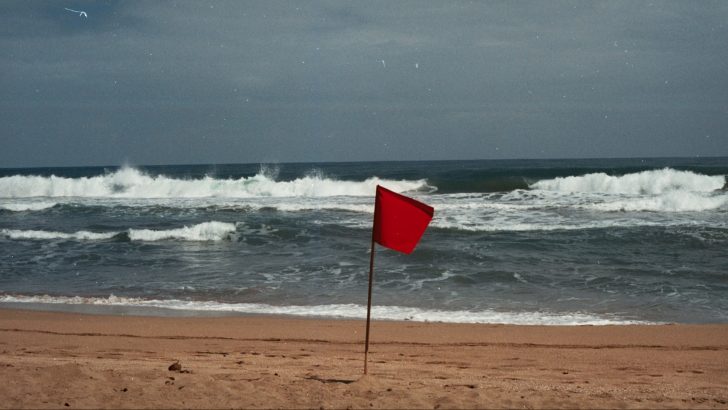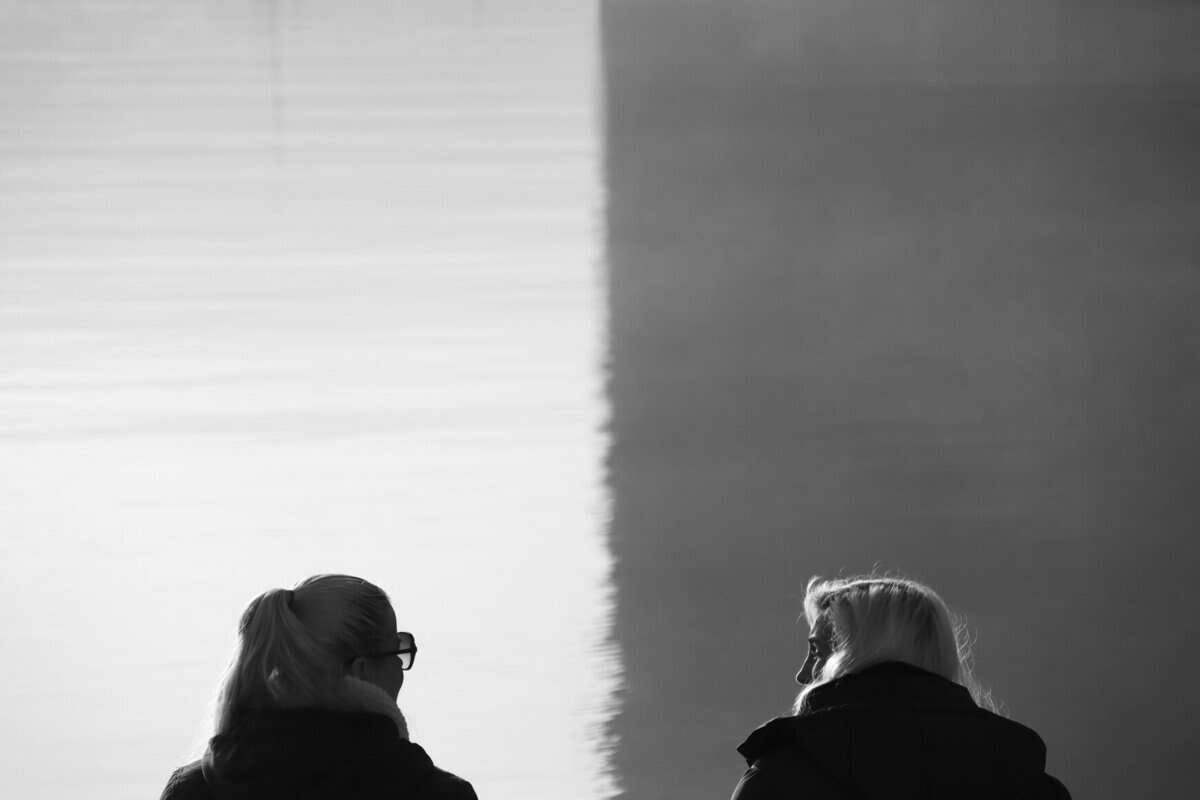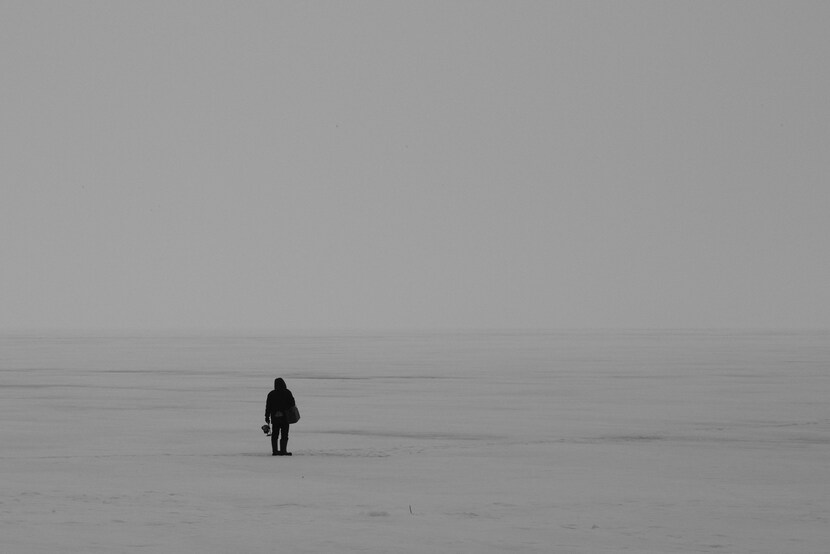We’ve all been there at some point – spotting those warning signs in someone we’re into, feeling that little twinge of doubt, but still choosing to stick around.
Our hearts and minds have a way of rationalizing bad behavior and dismissing glaringly red flags.
So, why do we keep hoping that things will change when, deep down, we know they won’t?
Sometimes, it’s about the people we’re attracted to, and other times, it’s our own baggage and upbringing that keep us stuck.
Let’s explore what makes us overlook red flags and how our own stories shape those choices.
1. The False Hope
One of the biggest reasons we overlook red flags is that we genuinely believe people can change.
We hold onto hope that their bad habits, attitude, or behavior will improve once they realize what’s at stake.
It’s easier to believe in a better version of someone than to walk away from something familiar, even if it’s unhealthy.
We tell ourselves that they’re just going through a rough patch, or that they’ll come around if we just love them enough.
However, deep down, most of us know that change is rare, and almost impossible if it doesn’t come from within.
Still, we cling to that hope because leaving feels like giving up.
2. Fear of Being Alone
Sometimes, we overlook red flags because the fear of being single or lonely is stronger than our desire for a healthy relationship.
We tell ourselves that we’re better off with what we have than risking the unknown of being alone. This fear can make us ignore warning signs that something isn’t right.
We convince ourselves that it isn’t so bad or that at least we’re not alone.
But this fear keeps us stuck in situations that aren’t good for us, just because the idea of being by ourselves feels worse than enduring the red flags.
Es un zona de confort we’re hesitant to leave.
3. Low Self-Esteem
If we don’t see ourselves as worthy of respect and kindness, we’re more likely to overlook and accept red flags.
When our confidence is low, we might believe that we don’t deserve better or that this is as good as it gets.
We look for excuses, such as that we might be overreacting, or that bad behavior is just a part of who they are.
Our upbringing, past experiences, or ongoing struggles with self-love can make us settle for less. We might also fear that standing up for ourselves will push the other person away.
Because of all this, we stay quiet and accept the red flags just to keep the connection alive, even if it’s unhealthy.
4. The Power of Charm and Manipulation
Some people are really good at hiding their true colors behind charm, making it easy for us to overlook red flags.
They know how to sweep us off our feet, shower us with compliments, or act like they’re the perfect partner – just long enough to distract us from their flaws.
This manipulation can make us doubt our own intuition, convincing us that maybe we’re overthinking things.
Their charm becomes a way to keep us hooked despite the warning signs.
We want to believe in the fairy tale, so we ignore the red flags, thinking that their good side outweighs the bad.
5. Familiarity and Comfort Zones
Sometimes, red flags seem less scary because they’re familiar.
If we grew up around chaos, disappointment, or unstable relationships, we might unconsciously seek out similar dynamics because it’s what we know.
Staying in a toxic or unfulfilling situation can feel safer than venturing into the unknown. Our brain pretty much tricks us into believing that it’s just how things have to be for us.
Comfort zones become barriers that prevent us from recognizing our worth and stepping away from destructive patterns.
The familiarity of chaos can sometimes feel like the only reality we know, and it makes us overlook red flags.
6. Looking for the “Good” in Someone
We often hold onto the hope that beneath all their flaws, there’s a good person trying to come out.
We focus on the tiny moment of kindness or vulnerability and convince ourselves that those moments must be signs of potential.
Este selective optimism makes us overlook the red flags because we believe that with enough patience and love, they’ll change.
We want to see the good in people, even when their actions say otherwise.
This hope can keep us invested long after the red flags should have been enough to walk away.
7. Fear of Confrontation
Addressing red flags often means having uncomfortable conversations, which many of us avoid.
We fear conflict, so we choose to ignore warning signs rather than risk a disagreement. We convince ourselves that bringing up concerns will cause fights of push the other person away.
So, we stay silent, and accept what’s happening.
Over time, this silence becomes a way to avoid confrontation, but it also allows red flags to stay overlooked.
More often than not, confronting the issues head-on is the healthiest choice, but fear keeps us stuck in the cycle of ignoring warning signs.
8. Childhood Wounds
Our past experiences and upbringing play a huge role in how we handle red flags.
If we grew up in environments where emotional neglect, inconsistency, o toxicity were common, we might unconsciously accept similar patterns in our adult relationships.
We might think that this is just how love is or that we don’t even deserve better.
Childhood wounds can distort our perception of what’s normal and healthy.
Until we do the work to heal, these old scars can make us overlook red flags because we believe that this is all we’re worth or that change isn’t possible.
9. Desire for Connection
Humans are wired for connection, and sometimes, our desire to have it makes us overlook red flags.
When we crave intimacy, validation, o amor, we might ignore warning signs just to feel close to someone.
We convince ourselves that the relationship’s flaws are minor compared to the emotional fulfillment it provides.
The fear of loneliness or being single can cloud our judgment, making us settle for less than we deserve.
Our need for connection can blind us to the toxicity or red flags because feeling loved, even if it’s imperfect, is better than feeling alone.
10. Lack of Boundaries
A lot of us overlook red flags because we still haven’t developed clear boundaries or self-awareness.
We might not recognize what’s acceptable or what’s a red flag until it’s too late. We get caught up in a relationship or moment, ignoring our gut instincts.
Without strong boundaries, we’re much more vulnerable to manipulation and mistreatment.
Building self-awareness and learning to set boundaries is key to recognizing and walking away from what’s unhealthy before it’s too late.
A little Aquarius, devoted to writing and embroidery. Through my writing, I hope to empower readers to align with their true selves and navigate life’s mysteries with confidence.











